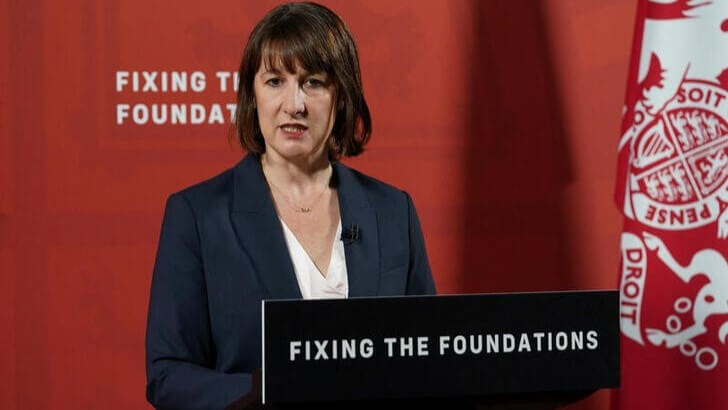With inflation nearing target levels and interest rates beginning to fall, business confidence has been on the rise in the first half of 2024.
Chancellor Urged To Boost Business In First Budget
With inflation nearing target levels and interest rates beginning to fall, business confidence has been on the rise in the first half of 2024.

The British Chambers of Commerce (BCC) is urging Chancellor Rachel Reeves to use her first Budget as an opportunity to stimulate business growth and bolster the UK economy.
In its submission, the BCC laid out policy recommendations focused on encouraging investment, strengthening the workforce, and revitalizing local economies.
The BCC's top five proposals:
- Creating a competitive investment environment by expanding full expensing to include leased assets and promoting North Sea investment opportunities.
- Supporting a healthier workforce by reducing taxes on workplace health services for both employers and employees.
- Engaging employers in skills planning, extending investment in Local Skills Improvement Plans, and addressing training gaps at the local level.
- Reforming business rates, with a goal of lowering the multiplier to 45p by the end of this Parliament to ease the tax burden on businesses.
- Investing in infrastructure, delivering previously planned transport projects, improving rail capacity, and updating planning rules to increase employment land supply.
With inflation nearing target levels and interest rates beginning to fall, business confidence has been on the rise in the first half of 2024.
The business group has upgraded its economic growth forecast three times this year, now expecting a growth rate of 1.1% in 2024, up from a low of 0.4%. However, the outlook remains less optimistic for 2025 and 2026, with growth forecast to stay flat.
Concerns over potential tax increases for businesses, alongside warnings of difficult budget choices, have made business leaders cautious. While interest rates may be easing, the lingering effects of the cost-of-living crisis have left many consumers reluctant to spend, and the UK's trade performance continues to be weak.
BCC Director General, Shevaun Haviland, highlighted the significance of the upcoming Budget: "The first budget of a new Government is always a pivotal moment to shape the expectations of business and the public for the years ahead."
Haviland stressed that businesses are eager for more detail on the government's plans to drive economic growth. "The Chancellor is right to champion the critical importance of economic growth and investment. On trade and investment, we need to unlock the potential of UK firms to expand and attract overseas capital for major projects."
The BCC is calling for decisive action on policies like full expensing, capital allowances in the North Sea, and business rates reform, all of which could free up funds for innovation across the country.
Public investment in transport, digital infrastructure, and the power grid is also crucial to supporting a 21st-century economy, sending a clear signal to investors that the government is serious about growth.
Addressing the workforce challenges, Haviland pointed out that firms continue to struggle to find staff with the necessary skills. "Steps are needed to help people with health issues stay in the workplace, and ensure that everyone has the training they need to secure jobs or progress in their careers."
Thanks for signing up to Minutehack alerts.
Brilliant editorials heading your way soon.
Okay, Thanks!


